16. "Everyone has a story to tell, even if they never write it down."
Fantasy worlds, ordinary lives, Creative Mini #1, and May reads
Dear reader,
Today I’m excited to announce the first mini creative chat. Older subscribers might have noticed that there hasn’t been a creative chat with an author on the newsletter since the November 2024 revamp. I want to return to the longer, in-depth chats I love sharing, but those require a lot more time, energy, and commitment from me than I currently possess; till then, I hope that these creative minis with their more structured format are a nice addition 😊. (You can catch up on previous Creative Chats here: https://anushreenande.substack.com/s/creative-chats.)
Creative Mini #1: Annie B. Jones
Kicking it off is someone whose name may ring a bell—I’d posted about reading her memoir, Ordinary Time two issues ago (read here). I’m thrilled to welcome her to What About Words.
Anu: What does creativity mean to you? How do you keep that spark alive on a regular basis?
Annie: Creativity feels active to me. I spend a lot of time in my head, but I feel most energetic creatively when I'm working with my hands: typing and writing and journaling, yes, but also decorating around my house, redoing store displays, rearranging my bookshelves. If I'm feeling stuck mentally, a little bit of movement helps, and for me, that includes writing—taking the thoughts swirling inside my brain and converting them into words and essays.
Anu: What are your favourite and not-so-favourite parts about the creative process?
Annie: I love the act of sitting at my desk and crafting an essay, working on it like I would a puzzle. When the words aren't coming, I like going for walks and listening to music or even picking up a book and reading a chapter. All of that feels like such a gift, perhaps because I still have plenty of other “non-creative” work I'm doing on behalf of my business. The ability to write and craft feels like a privilege, a new and different way to use my brain.
It's hard to say a “not favorite” aspect of creativity, but I think it's probably wrapped up in prepping the work for public consumption; tweaking an essay to make sure I've done my research or due diligence, thinking through who might read my work and then deciding if their reactions to it are my responsibility or not. Those kinds of things.
Anu: Can you talk a little bit about Ordinary Time: how it came about, what the process of writing it was like; were there any things that surprised or delighted you during the process, and anything else you'd like to share, really!
Annie: Writing Ordinary Time was a dream come true, and it all happened a whole lot faster than I anticipated. I wrote my proposal in the spring of 2023, secured an agent that August, then had a book deal by the end of November. I spent December of 2023 through April of 2024 writing the first draft; that summer, we edited, and then... the book released this spring.
I was delighted to discover how much I enjoyed just being at my desk and writing. I have a background in journalism, so I remember liking those aspects of previous jobs (writing, editing, deadline-meeting), but it's been a minute since I've been given the time and opportunity to try my hand at it again. I loved having a scheduled time to write and do creative work outside of my bookstore responsibilities.
Anu: Is there any advice you wish you’d gotten before you started writing this? Or just any advice for aspiring authors from your own experience, something that’s really helped you in your writing and publishing journey so far?
Annie: There's a bit of relief in knowing publishing is a little bit magic and miracle; it's not just about writing and talent and hard work. Finding an agent, for me, was very much wrapped up in personal connection; like so much of work, it really is partly "who you know." In my case, other aspects of my work—bookselling, podcasting—made publishing possible. I don't know that that's advice, per say, but maybe it could be a comfort to know that other work might make future work possible. “Slow and steady wins the race” etc.
Having a volume of work to show also matters. In my case, I had blogs and newsletters and Instagram captions that helped show the type of writing I was interested in; it also helped show publishers I had a (small but mighty!) audience who might be interested in my published work. So, keep writing, even if it feels small or inconsequential. One thing I learned from this whole process is I love writing, even if I never get to publish anything else ever again, even if I'm never a bestseller. I love writing, and I want to keep doing it in whatever capacities I'm able.
Anu: What do stories mean to you? What draws you towards the stories that you write, tell, read? With Ordinary Time, is there anything you’d like readers to take away from the book?
Annie: Stories make life make sense. They open us up to broader experiences, prepare us for the complicated truths of life and living. The stories I love to read and write and tell are wrapped up in the seemingly ordinary aspects of day-to-day existence, because those are the ones we have the most experience with. They're what we know. And if that's the case, then everyone has a story to tell, even if they never write it down. Everyone has a narrative they're living. That's fascinating to me.
You can follow Annie here: Instagram | Website
What I Read: May edition
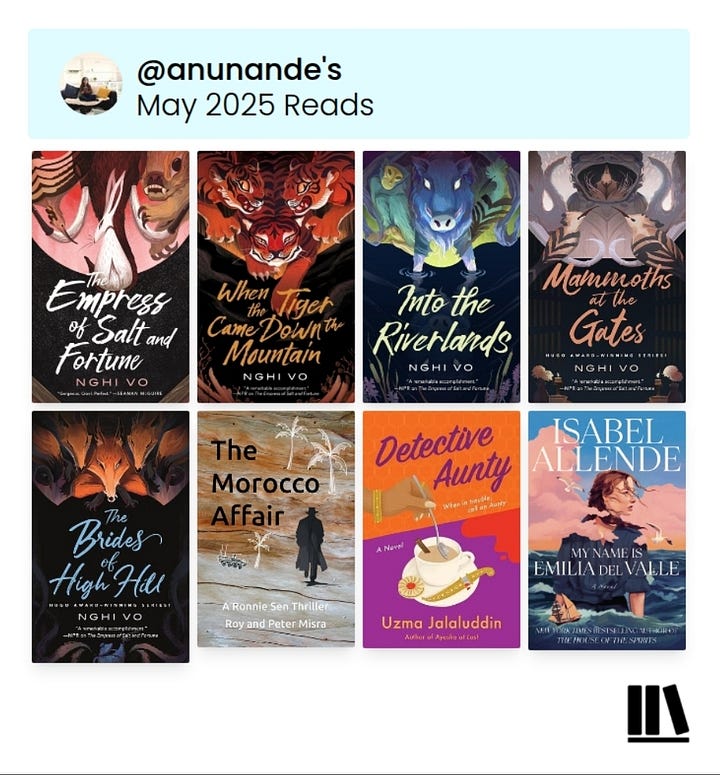
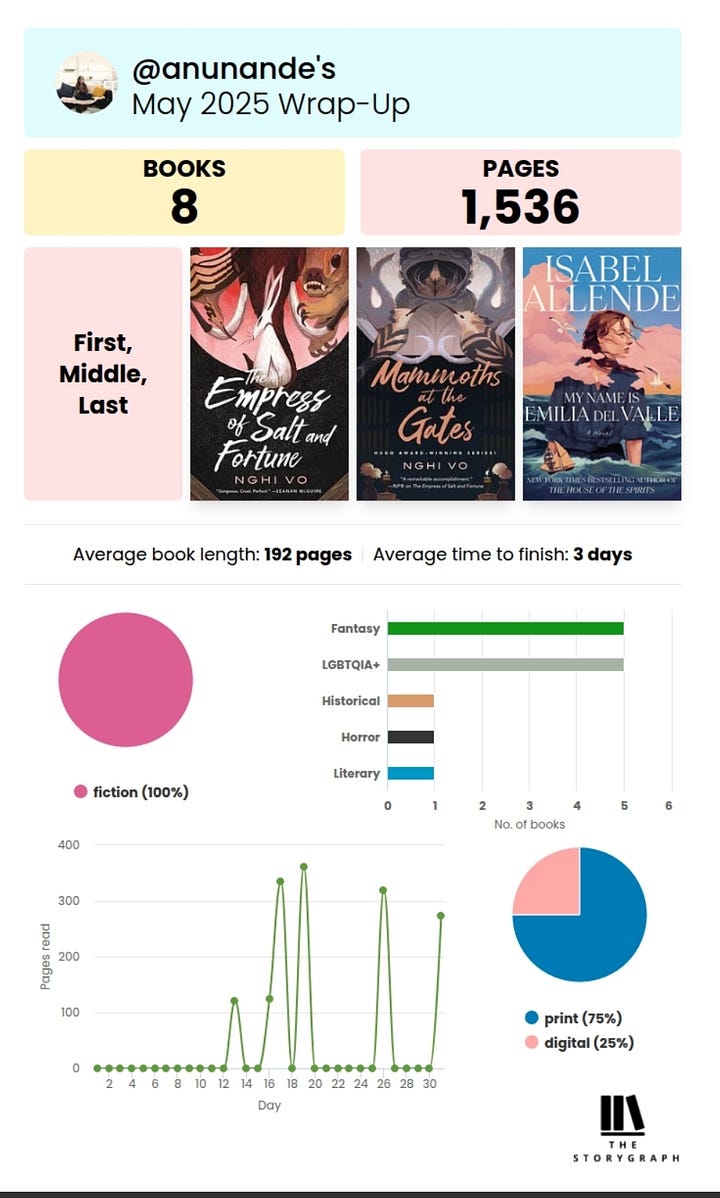
The Empress of Salt and Fortune by Nghi Vo (Singing Hills Cycle #1) - reread
We are introduced to the non-binary cleric Chih from the Singing Hills Abbey. Accompanying them is their neixin Almost Brilliant, an indelible memory spirit shaped like a talking hoopoe bird. All sites put under imperial lock during Empress In-yo’s reign have been declassified, so Chih and Almost Brilliant make a detour on their journey to the coronation of the new Empress in order to visit Thriving Fortune by Lake Scarlet, where the once exiled In-yo and her retinue resided before she took back the throne. One of that retinue, her closest hand-maiden, has returned, and Chih knows they won’t get a better chance to uncover the stories she has to share about the former Empress of Salt and Fortune. This is a story within a story revealed in fragments through narrated flashbacks.
*Buy print (India) | Buy ebook | Bookshop.org (US)
When the Tiger Came Down the Mountain by Nghi Vo (Singing Hills Cycle #2) - reread
Chih is in the northernmost reaches of the kingdom of Anh without Almost Brilliant who is sitting a clutch of eggs. The scout Si-yu is supposed to take Chih on her mammoth Piluk up the pass through the mountains, but they are waylaid by a trio of shapeshifting tigers and cornered in a barn near the way station; Piluk being the tigers’ only deterrent. To stay alive until the rest of the mammoths arrive in rescue, Chih must narrate the version of the story of the great tiger Ho Thi Thao and the scholar Dieu that is known to them; the tigers will correct the human version so that the truest version of the story can remain etched forever in the records.
*Buy print (India) | Buy ebook | Bookshop.org (US)
Into the Riverlands by Nghi Vo (Singing Hills Cycle #3) - reread
Almost Brilliant returns in this one, as Chih journeys through the Riverlands with a group encountered along the way: martial artist Wei Jintai and her sister Sang, and an older Riverlands couple, Lao Bingyi and Mac Khanh. Everyone is headed to a nearby river town—not by the ferry which takes longer and costs more, but by the old martial foot road that’s faster but more dangerous. This is more of an action-laced adventure story than the previous two, and it’s nice to see more of Chih’s personality and history. This installment brings together many different heroes and myths alongside a journey on foot, linking past and present, old and new.
*Buy ebook | Bookshop.org (US)
Mammoth at the Gates by Nghi Vo (Singing Hills Cycle #4)
Chih returns home to Singing Hills Abbey for the first time in almost three years to a pair of royal mammoths outside the gate. Chih’s mentor, Cleric Thien is no more, and his granddaughters from pre-abbey life are demanding his body for burial—they are fully prepared to ram down the doors and destroy the abbey (and all its preserved history and stories) in order to get the body. Even as Thien’s neixin, Myriad Virtues grieves his death, Chih, an old friend, and Almost Brilliant must decide how best to navigate a tough situation. This was a more melancholic and quieter addition to the series with a few pacier, more action-oriented bits, but one that, for me, ranks up among the best for the way it balances the internal and external; the intricacies, nuances, and breadth of the complex emotions it contains—it even manages to infuse humour; the characters, their individual journeys, and interactions. This was altogether wonderful, though a tad rushed towards the end.
*Buy ebook | Bookshop.org (US)
The Brides of High Hill by Nghi Vo (Singing Hills Cycle #5)
This story felt off right from the start and only got weirder and weirder until it exploded into gothic body horror. A very unlike the other stories in this series novella that still manages to be an entertaining read (check the trigger warnings, though). Rather than its storytelling focused, ruminative, and gorgeously composed brethren, this one embraces creepy and gory, and is a much more straightforward story on the page (albeit with a dramatic twist in the final third), with Chih actually an involved participant rather than simply the scribe. Whether this was a one off or a planned change in narrative direction will be clear once the sixth novella is out later this year.
*Buy ebook | Bookshop.org (US)
The Morocco Affair by Roy and Peter Misra
Peter’s an old and dear friend of my father’s, and a regular reader of this newsletter—when he shared that he and his brother had written a spy thriller, I knew I wanted to read it. It is 1941 and Ronnie Sen, a young Indian RAF officer, embarks on an undercover mission to Morocco, on behalf of the Crown. Morocco is under Vichy French rule, but the Germans are closing in. Ronnie joins Maggie, a Special Operations Executive, and together, along with her local contacts and new allies they make along the way, they have to foil a secret Nazi plot. I’m not a regular reader of espionage thrillers, but really enjoyed my time with this one! I hope they write another.
Detective Aunty by Uzma Jalaluddin
I've read two of the author's romcoms and enjoyed them enough to be curious about her new series, a cozy murder mystery series featuring an almost 60 year old Canadian-Muslim protagonist who's a recent widow. When her daughter (and oldest child) is arrested as the prime suspect in the murder of her landlord, Kausar Khan returns to Toronto from North Bay where she and her husband moved to escape the sudden, traumatic loss of their youngest then 15 year old son. Sana, Kausar's daughter, is married with two daughters, an early teen and a ten year old, and a fairly absent husband. Even as the grandmother helps with the cooking and looking after of her granddaughters, she makes enough time to observe and chat with the neighbours and others in the local community. Kausar's always been very observant, with a keen mind and intellect. Now, for the first time, she's getting a chance to throw off her old identity as housewife, and see all that she can be. This is a slow burn until the halfway point, sometimes too much so, and there are too many subplots and characters to keep straight at times, but Kausar makes for a sympathetic protagonist and one you root for as she starts to come into her own. The author has also added depth and a smattering of heavier topics—surprising given the genre—which elevates this into a better story. I wasn't a huge fan of the final chapters or the reveal, and there are loose ends left as they are (including one important one that's left unsolved for no other reason that the author seems to need it for the next book). But I'll definitely be checking out book 2, and would recommend this to readers who enjoy mysteries with a healthy dose of community and connection.
*Buy ebook | Bookshop.org (US)
My Name is Emilia del Valle by Isabel Allende
Isabel Allende returns with her fourth installment about this sprawling and complicated family first introduced in her 1982 debut. As always, the protagonist is a young woman longing for and living an unconventional life; someone fiercely independent, dreaming big dreams, wanting to discover purpose, a sense of self, and everything that life has to offer whether good, bad, and everywhere in between. Emilia is the daughter of an Irish nun (yup, you read correctly) and a Chilean aristocrat who promptly abandons them. But there’s a loving stepfather who encourages her curiosity and raises her to be self-sufficient. This is her coming of age story. It does get bogged down in the middle, grabs on to one too many plot conveniences and coincidences, and at times uses weird creative license with its point of view narration, but nonetheless this is a compelling addition to the author’s bibliography in her trademark style.
*Buy print (India) | Buy ebook | Bookshop.org (US)
Anu Recommends: The Golem and the Jinni and The Hidden Palace by Helene Wecker
A few days ago, I spied an instagram story from an author whose work I love. She’d posted about finishing book 3 in her ongoing series, and that it would be published in 2026. I wish more people knew about her first two books—so here I am as always, shouting into that void about the stories that I love.
Chava is a golem, a woman born of clay and Kabbalistic magic near the city of Danzig who, through a quirk of fate, finds herself alone and masterless in 1899 New York. She is taken in by a kindly old rabbi who can see who she is and, against his worries, believes he can help her to fight her built-in need to serve the desires of others.
Ahmad is a jinni from the Syrian desert who is accidentally released from an ancient copper flask that has housed him for centuries, trapped by a Bedouin wizard who he doesn't remember, in circumstances that are equally beyond the reach of his mind. Boutros Arbeely, a tinsmith, becomes the jinni's inadverent guardian in Lower Manhattan's Little Syria.
Chava and Ahmad live parallel lives until one fateful night sees their paths cross. So begins an unexpected friendship between two creatures who have more in common than their very disparate natures would suggest. Even as they become a part of the other's journey to navigate a world that seems so strange to them, and even as they struggle against the natures bestowed to them as members of their kind, there is a darkness approaching and closing in via a shadowy presence from both their pasts.
“All of us are lonely at some point or another, no matter how many people surround us. And then, we meet someone who seems to understand. She smiles, and for a moment the loneliness disappears.”
The burn is slow until it isn't, and even then, full of thoughtful discussions on free will, nature vs nurture, the consequence of action. The supporting cast is as three-dimensional as the lead pair, the pacing pitch-perfect, the worldbuilding gorgeous and the language beautiful and measured as and when it needs to be.
By using folklore from two often conflicting and contrasting cultures, Helene Wecker crafts an aching fantastical modern fable representative of the immigrant experience at a time when new legends and stories were being made across the world, but especially in New York City.
Part thriller, part rich historical fantasy, part adult folktale, part literary fiction, The Golem and the Jinni is a stunning debut and I couldn't recommend it more.
*Buy print (India) | Buy ebook | Bookshop.org (US)
The Golem and The Jinni introduced us to Chava and Ahmad who step out of legends into turn-of-the-20th-century New York.
If that was a perfect microcosm of the coming-of-age immigrant experience, The Hidden Palace is about the assimilation, about navigating the day to day of the new life and the trials, tribulations, joys, and victories once the great battle has been won. This is its strength and, ultimately, where the book falters a bit in comparison.
What it does really well is continue the organic, immersive worldbuilding, the gorgeous synthesis of Arab and Jewish folklore, as well as the ongoing development of its well-etched characters, who are, collectively and individually, relatable and sympathetic even when they are at their most frustrating.
Can magical beings truly live an “ordinary” existence? Should they even try to? Can someone’s inherent nature evolve? What is the extent to which community, especially a like-minded one, matters? What's the best way to embrace a new culture without forgoing the old or losing one’s place in the world? What really happens during the happily ever after imminent beyond the turning of the last page? Can fundamental differences ever be overcome enough through equally strong and connective similarities?
I loved how this felt almost Dickensian in its installment-like storytelling, how it allowed Chava and Ahmad to explore domestic and societal concerns rather the epic ones they faced in the first book. What do supernatural beings do when not saving the world? Because of it, this feels more intimate.
However, without a strong plot to scaffold this sprawling narrative, the first half can drag. It spans fifteen years and flits between characters and places in a way that often feels like too much, yet too little. The potent, vibrant magic realism of the first book is turned down too low for the most part, until it, and the story, suddenly bursts into frenzied life in the final third.
That said, there was much to love and I will always be glad to spend more time with these characters in this world. This is a book as complex and flawed as those who inhabit it, and just like them, is worth your time.
*Buy print (India) | Buy ebook | Bookshop.org (US)
I was lucky to speak with Helene for a feature in HT Brunch back in February 2022. You can read it below.
This issue’s getting a little long so I’m skipping the From the Archives section, but you can have a look at the entire archives here: https://anushreenande.substack.com/archive
If you’ve enjoyed today’s issue, here’s a few things you can do:
click on the heart to like it
turn this into a conversation by leaving a comment below or dropping me a line via email, even just to say hi—I always love hearing from you 😊
share it with friends and family who might like to read it
Buy me a coffee and support my work at https://buymeacoffee.com/anushreenande
Let me know what you’re currently reading and watching, send me rants/ramblings/recommendations/excited monologues, GIFs and memes (especially them) 🤓 and let me know if there is anything you’d like me to write about.
Take care and I’ll see you next on June 15!
Anu
*the book buying links I share on here are affiliate links (barring the links for my own published work for which I will earn royalties instead), which means that if you make any purchases through those links, I will receive a small commission from the sale at no additional cost to you.

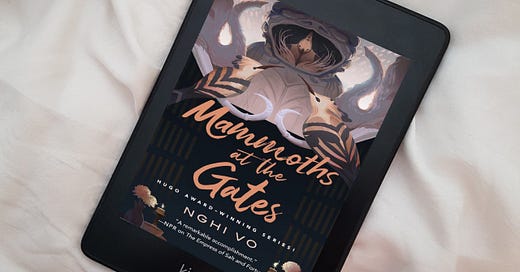


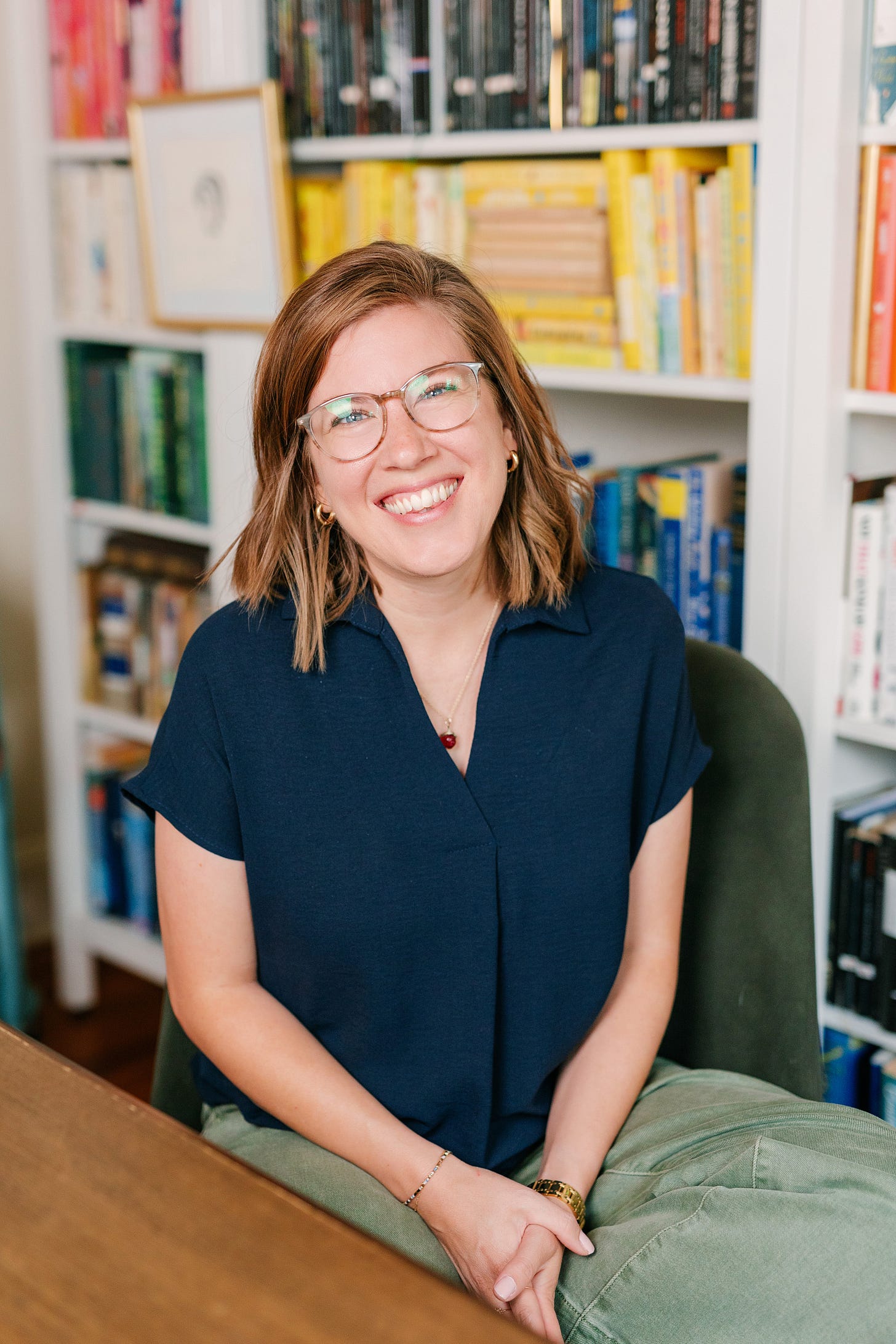
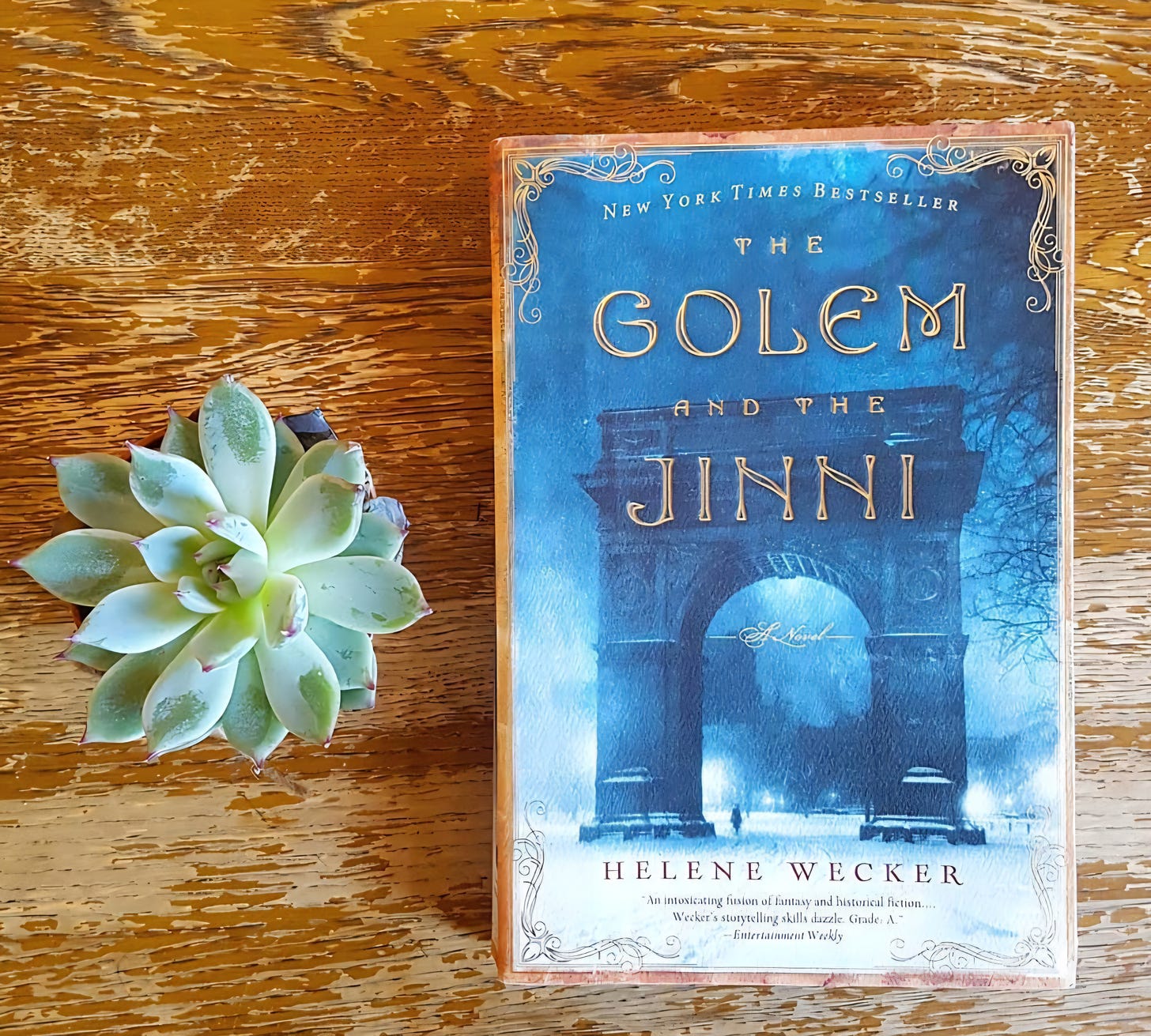
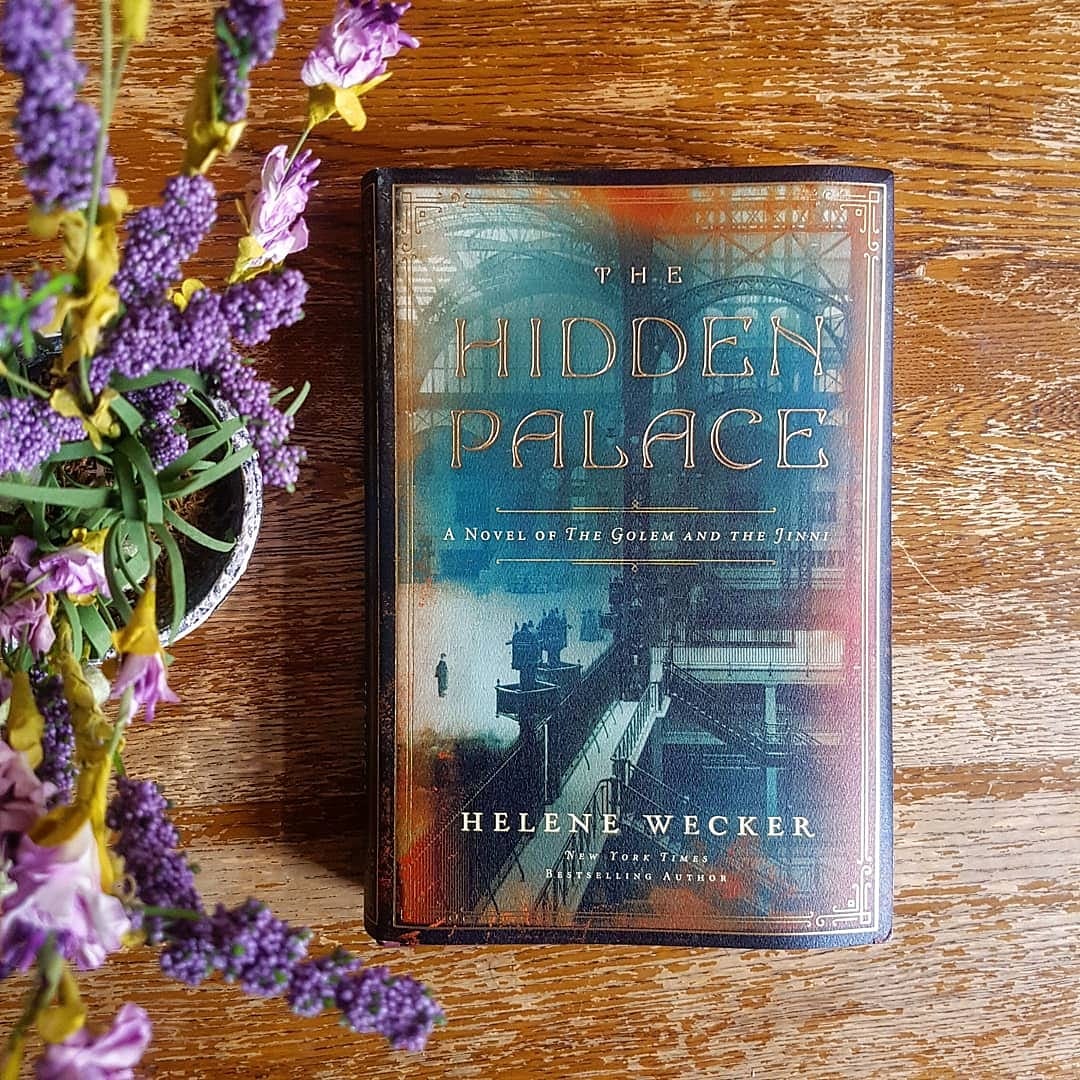
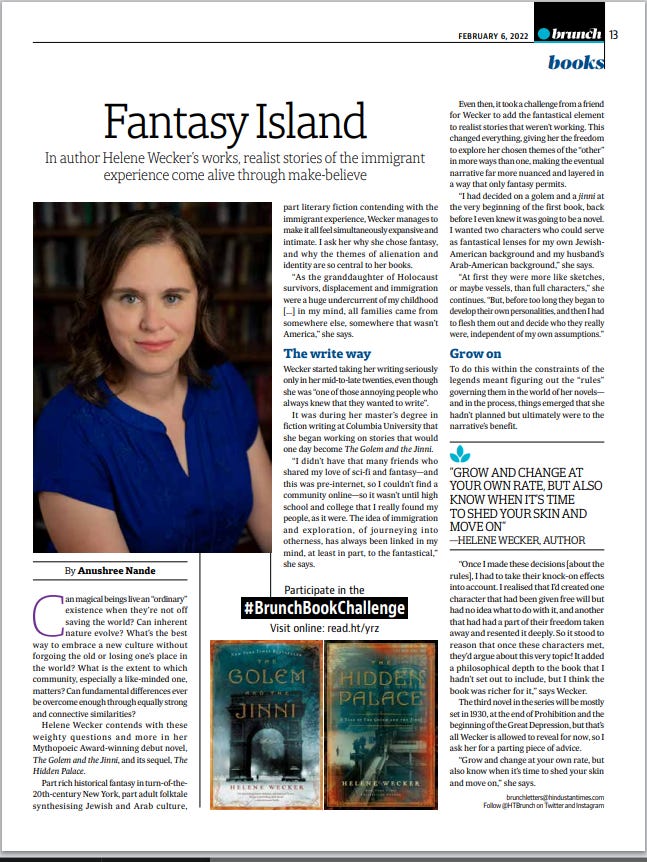
Dear Anu, as always it is a pleasure to go through your newsletter. The interview with Annie Jones was very enjoyable. Your speed of reading leaves me breathless. Love and best regards.